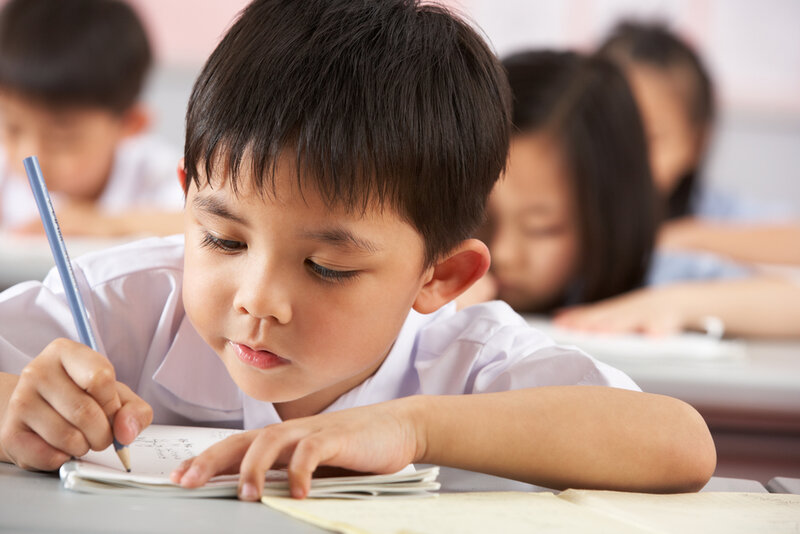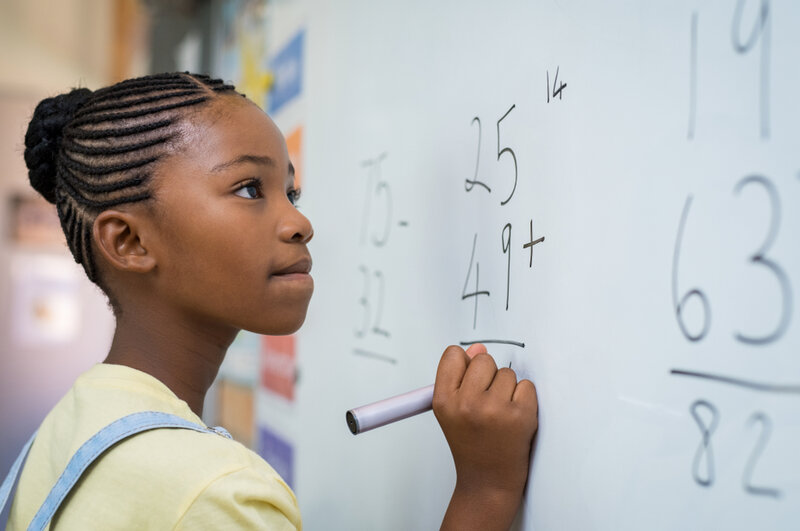Children who demonstrate exceptional abilities and potential may well benefit from some specialised care and education. If you suspect that your child has talents beyond what’s expected for their age, read on to find out how to identify if they are gifted, what resources are available to you as a parent and how you can help them to thrive.
What Does it Mean to be Gifted?
The term “gifted” is a difficult one to pin down. While it is often associated with being highly intelligent or being a genius, neither of these are entirely accurate. The National Association for Gifted Children (NAGC) defines giftedness as “students who have gifts and talents and perform – or have the capability to perform – at higher levels compared to others of the same age, experience, and environment in one or more domains.” Intelligence generally refers only to overall cognitive abilities, including capacity for reasoning, problem-solving, memory, and learning. These are typically measured through standardized tests such as IQ tests and provide a numerical score that represents an individual’s relative intelligence compared to the population. A gifted diagnosis refers to a person who excels in one or more specific areas, be they intellectual, creative, artistic, or academic regardless of their IQ score which may be low or high. While the term “genius” is also used of someone who is gifted, it goes further than that, typically referring to individuals who possess extraordinary intellectual or creative abilities that set them apart from the general population. It implies exceptional originality, insight, and innovation in a particular field and a level of exceptional talent, expertise, or accomplishment that has a significant impact on a particular domain.
How to Tell if your Child is Gifted
Since every child has their own unique personality, giftedness will not look the same in everyone. However, it is often characterized by a combination of high intelligence, creativity, and task commitment in a particular domain, and there are certain traits you can look out for.
If your child is still pre-school age, you may notice that they achieve developmental milestones earlier than their peers. They may speak more eloquently than you would expect from a child of their age, using more sophisticated and extensive vocabulary and advanced sentence structures. They may also demonstrate an ability to analyse and solve complex problems or show an early interest in reading, writing, or maths. The way that gifted children learn can also be different in that they ask complex questions and seek out information independently, as well as grasping new concepts quickly and retaining a lot of information. Their reasoning skills may seem older than their years and they may readily make connections between different ideas or subjects. If tasks particularly interest them their focus and concentration may seem intense, and they will become heavily absorbed in a particular topic or activity for extended periods and exhibit a strong drive to explore it further.
It’s important to remember that while children generally reach developmental milestones around the same time, every child learns differently and picking something up early isn’t necessarily a sign of being gifted. It can also depend on how much practice a child gets, especially at skills that can be taught through repetition—for example if you spend hours each day matching pictures and words on flashcards with your toddler, it’s likely that they’ll be able to match them themselves pretty quickly—that’s where we get the phrase “children are like sponges!”
Education Bureau (EDB) Traits of Gifted Children
Cognitive Traits:
• high level of language development and verbal ability
• extraordinary memory and attention
• advanced reading and comprehension ability
• logical thinking
• prefer self-directed learning
• quick thought processes
• extremely curious
• early ability to use and form conceptual frameworks
• high problem solving and analytical ability
Affective Traits:
• zany sense of humour
• unusual emotional intensity
• perfectionist
• early development of an inner locus of control
• leadership ability
• very sensitive to oneself, others and the surroundings
• like to compare their accomplishments with other classmates
• like to make friends with older and mature persons
Creative Traits:
• high energy level
• high aesthetic sense
• risk taking
• imaginative and always day dreaming
• good at divergent thinking
• like to work independently
• flexible, willing to explore new ways to solve problems
Challenges of Being Gifted
While high levels of cognitive development are common in gifted children, the EDB point out that this does not necessarily imply similar levels of development in the mental, emotional or social aspects.
Mental
Perfectionism is a common side effect of being gifted since children may become used to overachieving. They may set extremely high standards for themselves, become overly self-critical, fear failure, or experience anxiety when they perceive they are not meeting their own or others’ expectations. Paradoxically, some gifted children may also end up underachieving as they tend to lose motivation and become bored or disengaged when the learning content is too simple for them. This can then have a drastic effect on their self-esteem and overall well-being because they don’t know how cope with not being top in everything.
Emotional
Gifted children often have a hard time navigating their feelings, as they can possess heightened levels of intensity in their emotions as well as their intellectual pursuits. Feeling such intense emotions, they may seem oversensitive or overexcitable, as well as displaying a strong sense of justice and fairness when dealing with others. This awareness of their own and others’ feelings at a young age can further manifest as a concern with the meaning and purpose of life, which can make them highly anxious about the world and their place in it.
Social
It’s no surprise that experiencing the world so differently from their peers may cause gifted children to have trouble socialising with others. The discrepancy between their intellectual abilities and their emotional and social development can be incredibly frustrating and can cause children to feel isolated from others their age. Conversely, their peers may struggle to share their interests or relate to their intellectual depth, leading to a lack of inclusion in their social groups. This can result in a vicious cycle which is difficult to break.
What to Expect if you Have a Gifted Child
Provision for gifted children varies greatly by school, so if you feel your child needs additional support don’t be afraid to reach out to their teachers to find out what’s available for them; if they are unable to advise, they’ll at least be able to pass your concerns on to someone in the correct department. Every school will offer some form of differentiated learning for those who are ahead of their peers, but additional support may differ greatly. The philosophy surrounding the balance of whole-class teaching versus pull-out programmes, the balance of free versus paid-for support and the social programmes available for those who are finding it hard to fit in may be some areas to investigate. If your child is starting a new school, it’s worth researching these interventions first if you feel your child may be gifted.
Moving up a year may be considered, but this can bring additional social and emotional problems even if it appears that your child is struggling with friendships in the year they are in; these issues may be more to do with the gap between their development in these areas and their intellectual abilities than with the other children. Experienced educators will be able to advise on where the focus should be at each stage of your child’s development. Of course, there are other options available to you outside of mainstream education if you feel your child would benefit from it.
What Next?
If your child shows characteristics of being gifted, it’s important to ensure that they have access to appropriate learning opportunities to realize their potential. Whether your child’s teacher raises the issue with you, or another adult who regularly spends time with them, these conversations will be the first steps in working out how to best help your child to make the most of their talents. They may be able to point you in the direction of educators or psychologists who specialise in gifted education and can conduct cognitive, emotional or social assessments in order to provide guidance on appropriate educational interventions and enrichment opportunities for your child. With the correct help and support you can be sure that your gifted child grows up as a rounded individual who takes advantage of all their talents.
Resources Round Up
The Hong Kong Education Bureau (EDB)
The Hong Kong Education Bureau (EDB) has a section on gifted education that includes parenting tips and links to local universities and organisations that provide support. www.edb.gov.hk
The Hong Kong Academy for Gifted Education (HKAGE)
The Hong Kong Academy for Gifted Education (HKAGE), The Hong Kong Education Bureau (EDB) website has a wealth information and advice on raising gifted children, and there’s also a free hotline for parents if you want to discuss your individual situation. Funded by the Education Bureau (EDB), the non-profit organisation primarily caters to local gifted students aged 10 to 18 who can apply to receive access to appropriate learning and development courses, but they also offer fee-based assessment and interview consultation/counselling services. www.hkage.edu.hk/
Aristle Gifted Institute
Aristle Gifted Institute was founded in 2010 by a group of gifted individuals. It provides multi-disciplinary programmes and counselling for early years students that aim to assist in their intellectual, social and emotional development. www.agi.edu.hk/
EOK Academy
EOK Academy offers a gifted learning course which aims to prepare students for access to the world’s leading universities. It offers students from Grade 6 to Year 9 the opportunity to obtain internationally recognized qualifications including IGCSE and GCE at their own pace, usually over one to four years depending on the students’ progress. www.eokacademy.com
G&T (Gifted and Talented Education)
G&T (Gifted and Talented Education) provides a gifted education programme for 3-16-year-olds, including accelerated IB/IGCSE and international competitions.
www.gifted-school.com
Written by Hollie Arnulphy
Related articles:











